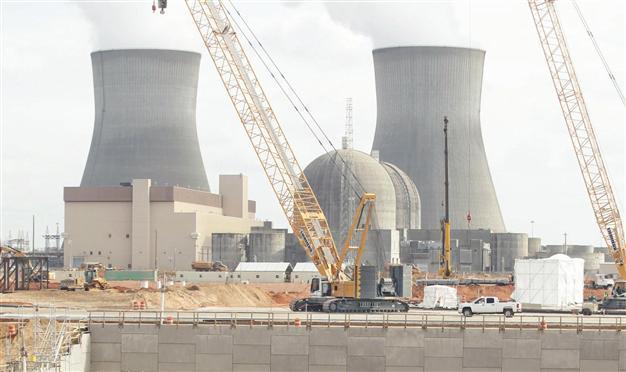Georgia Power interested in Turkey’s nuclear plant
BEIRUT- Agence France-Presse

This file photo shows new reactors at the Georgia Power plant in Waynesboro, Georgia. The firm shows interest in building nuclear power plants in Turkey. AP photo
U.S.-based Georgia Power is interested in joining Turkey’s nuclear power plant project, its Chief Executive Officer (CEO) Paul Bowers said on June 8.“Turkey wants to be independent in the energy arena. We can help them because we have been constructing nuclear power plants for the past 30 years,” Bowers told the Anatolia News Agency during his visit to Turkey with Georgia State Governor Nathan Deal. Bowers stressed that Georgia Power had expertise in ensuring that nuclear energy remains both safe and clean. Bowers and Deal are planning to meet with Turkey’s Economy Ministry during their visit to discuss their interest in the nuclear plant project.
“We have 104 nuclear reactors in the U.S. and 400 around the world. We ensure that our nuclear projects are in line with all safety standards. If there are any other recommendations or suggestions beyond this, we can of course take those on as well,” Bowers said.
The move comes as Minister of Energy and Natural Resources Taner Yıldız has announced that Turkey is determined to build nuclear power plants, and aims to establish 23 nuclear units by 2023. The country is in talks with Japan, South Korea, China and Canada for the second nuclear power plant to be constructed in the northern province of Sinop. Russia’s nuclear energy giant Rosatom has been awarded the contract to build Turkey’s first nuclear power plant in the southern province of Mersin. The plant with four reactors will cost around $20 billion and will be active for 60 years.
Deal, meanwhile, stressed that Turkey was a regional leader and that as far as he could tell the economy was very strong. When asked about the signing of a possible free trade agreement with the United States, Deal said that he hoped that this issue would be taken up by Washington as soon as possible. He noted that the slowdown in the signing of such an agreement was due to the current European debt crisis.
















